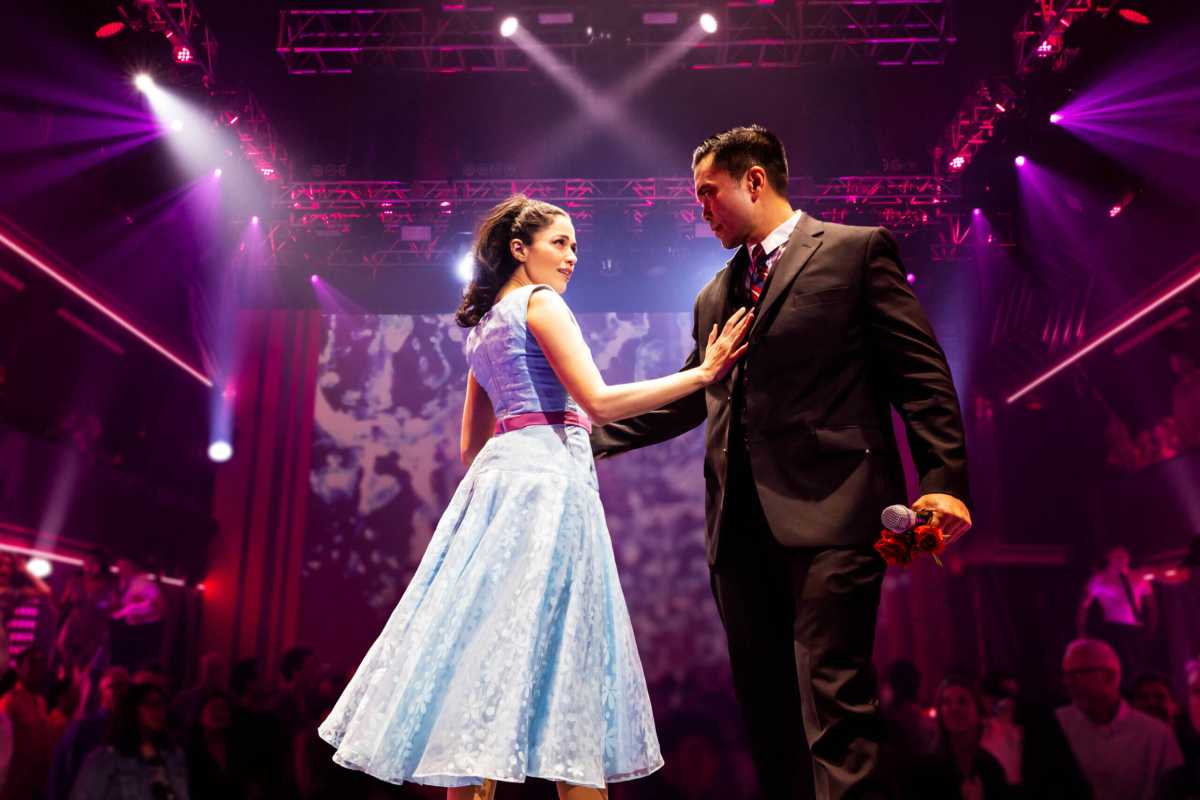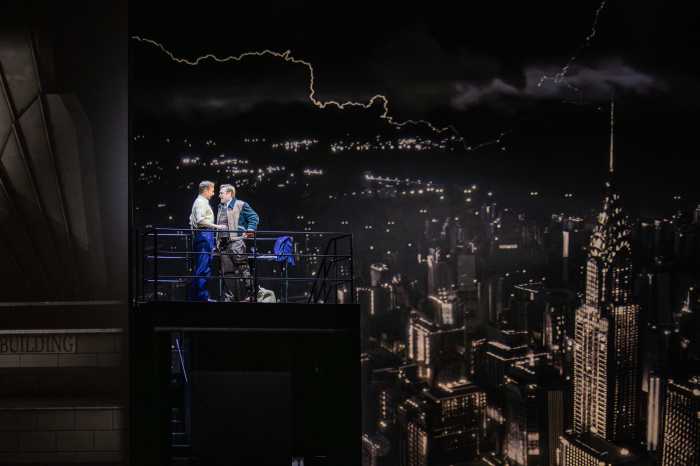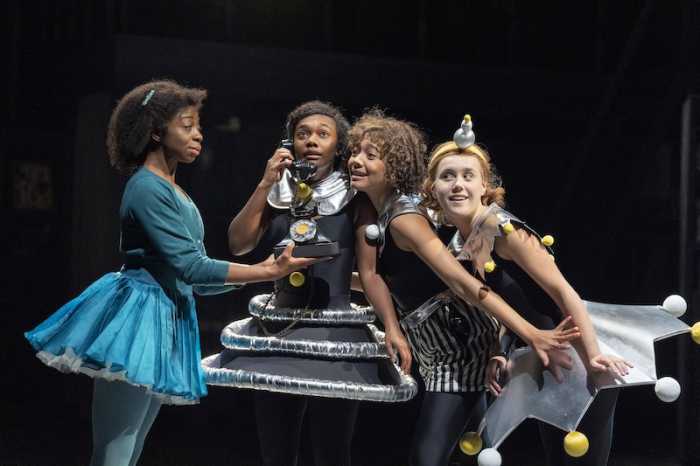The rise and fall of a fascist dictator and his power-hungry wife are not the usual stuff of musicals, yet the most interesting character in “Here Lies Love,” now on Broadway, isn’t on the stage. It’s the audience, or in this case, a big part of it.
The musical tells the story of the rise and fall of Ferdinand and Imelda Marcos, their rise to leading the Philippines, their corruption, the havoc they wreaked on the country and its people, and their ultimate downfall in the People Power Revolution that finally wrested them from power in 1986. The sung-through piece follows Imelda from a life in the slums through her first relationship with Ninoy Aquino, her marriage to Marcos, and the debauched, international, party-fueled life she led while her people suffered at home. She is the quintessential outsider, seduced by images of glamor and fighting for a place at the table who has managed to convince herself that she is doing everything for her people. She is, in this telling, a tragic character blinded by ego and her underlying fear of illegitimacy. As such, she blasts through life, senseless to the misery she leaves in her wake.
Yet while all this is unfolding on a series of moving platforms in the gutted Broadway theater that has been transformed into a dance club (Visual references to Studio 54 are intentional. Imelda partied there.), it is the audience being moved around on the floor, staying out of the way of huge platforms, and herded by a cadre of enforcers in pink jump suits, that is chilling. As part of a throng of 300, one gets the sense of mob mentality, as one is told where to look, when to jump, and is swept along with the action, lights, and music. Even as Aquino calls attention to the excesses and abuses of the Marcoses, the crowd dances on, often at a fever pitch. It is only later that one awakens from the fever dream as the peaceful revolution takes back the country and wonders, “What did I allow myself to be involved in?”
“Here Lies Love” is entertaining agit-prop, in the vein of the 1937 Marc Blitzstein musical, “The Cradle Will Rock.” Beneath its veneer of entertainment, there is a wake-up call to the audience. As such, the parallels to our current political situation are obvious and have become more pronounced in the decade since New Yorkers first saw this show at the Public Theater. The show has been slightly rewritten to underscore the potential for rising fascism in our time; just in case you should miss it.
Other than that, the show is largely unchanged from earlier productions. The move to the Broadway theater has enlarged the audience, and the mezzanine holds another 500 or so who watch, more passively.
The score by David Byrne and Fatboy Slim features Byrne’s eclectic, pop/art style of songs that are largely upbeat and infectious. The inherently joyful, danceable tunes are a meta commentary on how a nation — and people in general — can be seduced into beliefs and behaviors that are inimical to their greater good. It’s only at the end with the haunting “God Draws Straight,” taken from words spoken or written by people who experienced the peaceful revolution, that the full impact of what’s gone before is felt and that “you think you were lost,” but are finally awake.
This all works so well thanks to the creative team. Director Alex Timbers, choreographer Annie-B Parsons, lighting designer Justin Townsend, and costume designer Clint Ramos. The star of this impressive group, however, is set designer David Korins. He has created the powerful and unsettling physical environment that defines the experience.
The all-Filipino cast is spectacular. Jose Llana as Marcos and Conrad Ricamora as Aquino reprise their roles form the Public Theater’s production. In the ensuing years since then, their performances have grown in depth and nuance. Their characters are sharper — and more harrowing. Arielle Jacobs steps into Imelda’s shoes (By the way, there’s no mention of Imelda’s famous footwear fetish in the piece.) and portrays the character as deluded but oddly sympathetic. Also wonderful is Melody Butiu as Imelda’s childhood maid and best friend whom Imelda abandons as she grapples her way to power.
In the end, though, as you’re dancing your way back out into Manhattan, “Here Lies Love” reminds us to be vigilant, not to be seduced by the dancing and mirror balls, realize how vulnerable our gains might be, and fight back against that which would oppress us.
“Here Lies Love” | Broadway Theatre | 1681 Broadway | Tues-Thurs 7 p.m.; Fri 8 p.m.; Sat 3:30 & 8 p.m.; Sun 2 & 7 p.m.| Dance Floor Tickets (standing) $135.50, Mezzanine Seats from $49 | Telecharge.com | 90 minutes, no intermission





































